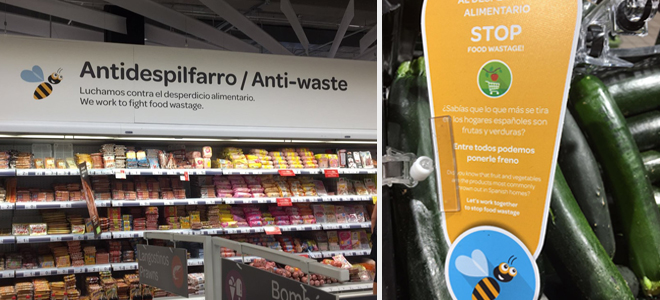July 13, 2017 Industry news
Reducing food waste has been a hot topic for the grocery industry for some time now. Here in the UK, we continue to waste a significant amount of perfectly good food every year. But now retailers are coming up with new ways to tackle the issue head on.
It’s no secret that food waste has been a major pain point for the industry. UK supermarkets are throwing away 115,000 tonnes of perfectly good food away each year, and UK households are binning £13bn worth of food according to recent figures.
Causes of food waste in the supply chain
Last year, a report announced how the food manufacturing sector is responsible for the bulk of edible food that is wasted in the UK. Food Director at FareShare, Mark Varney, told BBC Radio 4’s Today programme: “The real issue is where food is being disposed of at the manufacturing sites. That’s where the bulk of edible food is being thrown away at the moment. Not at the retail stores, not at the retail distribution centres.”
Mark also claimed this was happening because it was cheaper to dispose of the food rather than keep it and give it away to other organisations which distributes it to community groups and charities.
Here’s a few examples of how food waste occurs in the grocery retail supply chain:
- Poor planning and forecasting – leading to too much or too little inventory
- Out of sequence movements in the supply chain – which means a store can receive stock from the distribution centre with a shorter use-by date than they already hold
- Poor handling of product through the supply chain – leading to stock being damaged and thrown away
New food waste initiatives
Most retailers are signatories to either international or national programmes to reduce food waste. UK supermarket giant, Tesco, launched an innovative, online food waste ‘hotline’ earlier this year to make it easier for growers and suppliers to pinpoint ongoing food waste hotspots, and to work with retailers to tackle them. The hotline is accessible to all Tesco suppliers via their Supplier Network which is used regularly by over 5,000 Tesco partners.
But while food waste is a major issue in the supply chain, customers waste food too. Supermarkets engage with millions of customers on a weekly basis, giving them the perfect opportunity to encourage customers to reduce food waste.

One example is French multinational retailer, Carrefour, who have been tackling the food waste issue head on by reinforcing the food waste message to shoppers at the point of sale. In Carrefour stores in Spain, signs are placed in several locations and on baskets with clear food waste messages. It’s a bold move, which shoppers are seeing in a positive light, enhancing Carrefour’s credentials as a responsible retailer.
Sainsbury’s are also clamping down on food waste with their £10m Waste Less, Save More campaign. One of their most recent projects has been their smart label packaging for ham. It’s been estimated that 1.9 million slices of ham are wasted in the UK every day. The function of these labels is to alert customers when their ham is about to expire. The label changes colour from yellow to purple – depending on how long the pack has been open.
The use of data embedded barcodes
Data embedded barcodes, including GS1 DataBar, holds additional data within the barcode such as expiry dates for fresh food. This gives retailers much better data captured at the point of sale.
Retailers in countries such as Korea, Ireland, Belgium, Poland, Italy, Australia, Canada and the US, are already using these barcodes to help manage their stock throughout supply chains. Many UK grocery retailers have expressed an interest in data embedded barcodes as a lever to help reduce food waste, supplementing their on-going programmes. In fact, we’re expecting to see a UK pilot of GS1 DataBar in store very soon.
Related
Food waste – new industry initiatives to reduce it
Retailers bid to contend with Amazon by launching 60-minute deliveries